Search
Search Results
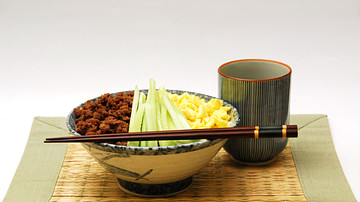
Article
Food & Agriculture in Ancient Japan
The diet of ancient Japan was heavily influenced by its geography as an archipelago, foodstuffs and eating habits imported from mainland Asia, religious beliefs, and an appreciation for the aesthetic appearance of dishes, not just the taste...
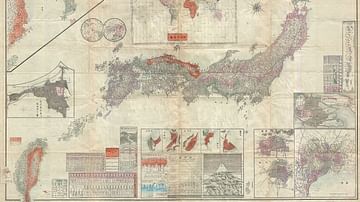
Image
Map of the Japanese Empire, 1895
Map of the Japanese Empire, 1895. It was issued shortly after the 1895 Japanese invasion of Taiwan and is consequently one of the first Japanese maps to include Taiwan and Korea as provinces of Imperial Japan. Geographicus Rare Antique Maps...
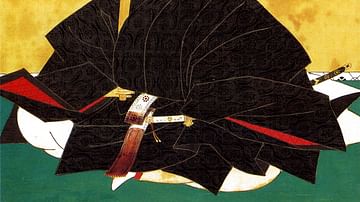
Definition
Tokugawa Tsunayoshi
Tokugawa Tsunayoshi (1646-1709) governed Japan as the fifth shogun of the Edo period (1603-1876). He has often been ridiculed as the 'dog shogun' because of the laws he enacted to protect the lives of animals. Economically, however, the period...
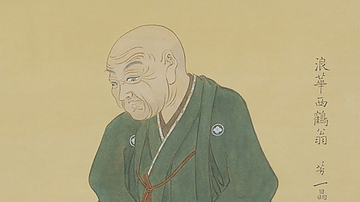
Definition
Ihara Saikaku
Ihara Saikaku (1642-1693) was a Japanese poet and novelist who played a leading role in creating the so-called ‘floating world’ (ukiyo-zoshi) genre of popular literature in the 17th century. His work was significant because, in terms of both...
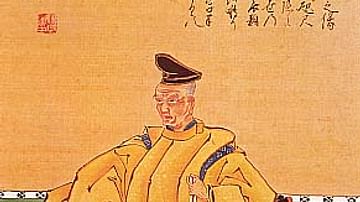
Definition
Chikamatsu Monzaemon
Chikamatsu Monzaemon (1653-1725) was a Japanese playwright who wrote for both the puppet theatre and kabuki. He is regarded as Japan’s greatest dramatist. Apart from their aesthetic appeal, his plays are of value because they provide an insight...
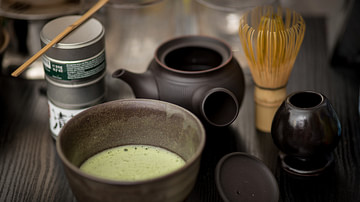
Image
Chanoyu - Japanese Tea Ceremony
The essential implements of the chanoyu or Japanese tea ceremony.
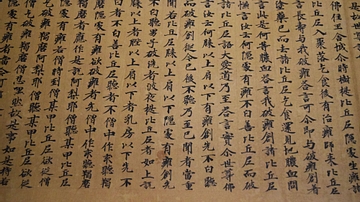
Image
Portion of a Japanese Monastic Code of Conduct
This is a selection from the "Gogatsu tsuitachi kyo" compilation, vol. 39, and it details the rules and regulations for monks in ancient Japan. It dates from 740 CE, which corresponds to the Nara period in Japanese history. It was made from...
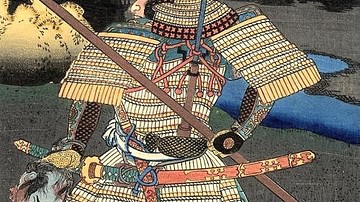
Definition
Samurai
The samurai (also bushi) were a class of warriors that arose in the 10th century in Japan and which performed military service until the 19th century. Elite and highly-trained soldiers adept at using both the bow and sword, the samurai were...
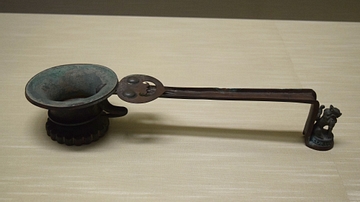
Image
Ancient Japanese Incense Burner
This ancient Japanese incense burner has a lion-shaped weight at the end of its handle. It was cast in bronze and dates from the 8th century CE during the Nara period in Japanese history. (Tokyo National Museum)
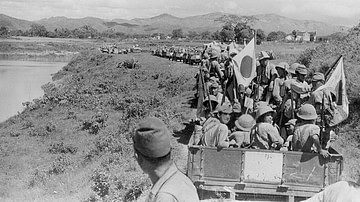
Image
Japanese Troops Enter French Indochina, 1940
Japanese troops enter French Indochina and head towards Lang Son in what is northern Vietnam today. During 1940, Japan began to encroach on French Indochina so that they could cut off the supplies that were routed through the area and into...